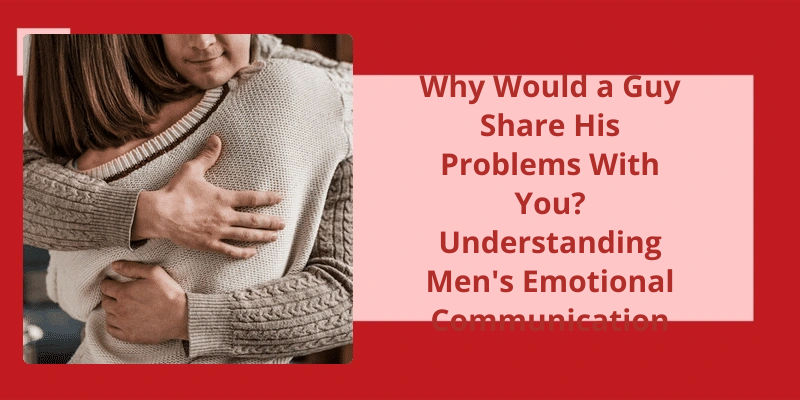Interpersonal conflicts are inevitable, and sometimes we may find ourselves in situations where someone lashes out at us. It may be because they’re experiencing strong emotions, have been triggered by something we said or did, or are dealing with challenges that are beyond their control. Regardless of the reason, it’s important to remain calm and composed and respond in a way that de-escalates the situation and promotes understanding. Of course, this is easier said than done, but with the right strategies and mindset, it’s possible to communicate effectively and resolve conflicts in a constructive manner. In this article, we will explore some tips and techniques on how to respond when someone lashes out at you, including acknowledging their feelings, offering help and support, and using active listening skills to show empathy and validate their experiences. By cultivating these skills, we can foster deeper connections with others and build stronger, more resilient relationships that can weather any storm.
What Does It Mean to Lash Out on Someone?
Lashing out on someone is an expression of strong emotions, usually anger or frustration. It can lead to a verbal or physical attack, and it often occurs when someone feels threatened or provoked.
When an individual lashes out on someone, it can have severe consequences. Not only does it harm the recipient of the lashing out, but it can also lead to feelings of shame and guilt for the individual who acted out. It’s important to recognize when one is feeling overwhelmed and to take steps to manage ones emotions before they boil over into violent outbursts.
Some may lash out because of past trauma, while others may lash out because of current stressors in their life. It’s essential to understand the root cause of ones emotions to properly address them and prevent future outbursts. Being aware of ones triggers can help individuals to cope better and avoid situations that may cause them to lash out.
There are several ways to deal with emotions that may lead to lashing out. One can engage in activities that promote relaxation, such as exercise or meditation. Engaging in healthy activities with loved ones can also help in managing emotions and building healthy relationships. Journaling is another effective way of expressing difficult emotions and can help an individual to process their feelings rather than projecting them onto others.
Taking ownership of ones emotions and acting responsibly is the key to living a healthy, fulfilling life.
Dealing with someone who’s anger issues can be a difficult and sensitive situation to navigate. It’s important to choose your words carefully when addressing their emotions and not say things that could exacerbate the situation. Here are ten things you should never say to someone who’s angry.
What Should You Not Say to Someone With Anger Issues?
When someone is struggling with anger issues, it’s important to approach them with empathy and understanding. One of the worst things you can say to someone with anger issues is to dismiss or minimize their feelings by telling them they’re overreacting or being too sensitive. This invalidates their emotions and may only serve to exacerbate their anger.
Another harmful statement to make is to tell someone that you’re going to ignore them until they calm down. This can be interpreted as dismissive and uncaring, further fueling their anger and potentially causing a full-blown meltdown. Similarly, threatening someone with consequences for their behavior can escalate the situation and may trigger a more violent response.
Telling someone with anger issues that they’re acting crazy or irrational is another common mistake that can backfire spectacularly. Being labeled as “crazy” can be stigmatizing and demoralizing, and may cause the person to withdraw or shut down emotionally. The same goes for comparing them to someone else who also struggles with anger – it can feel like an attack on their character and is unlikely to lead to a productive conversation.
One classic tactic that doesn’t work is asking someone with anger issues what you should do about their behavior. This puts the responsibility back on them, which can only serve to increase feelings of frustration and helplessness. Instead, try to show them that you’re on their side and willing to work with them to find a solution that works for everyone involved.
Finally, telling someone they’re wrong outright is unlikely to be helpful, as it can be perceived as confrontational and dismissive. Even if you disagree with their point of view, it’s important to respect their lived experience and try to see things from their perspective. This can help to build trust and strengthen your relationship with them, which is key to helping them manage their anger over the long term.
Strategies for Communicating Effectively With Someone With Anger Issues
- Listen actively to what the person is saying and acknowledge their feelings
- Avoid interrupting or talking over the person
- Use “I” statements to express your own feelings
- Avoid using accusatory language or making assumptions
- Stay calm and focused during the conversation
- Recognize when it’s necessary to take a break or end the conversation
- Suggest seeking professional help if necessary
- Be patient and understanding towards the person
- Try to find common ground and work towards a solution together
Conclusion
In conclusion, responding to someone who lashes out at you can be challenging, but it’s important to remember that everyone has their own struggles and reasons for their behavior. Responding with empathy and understanding can deescalate the situation and foster a deeper connection. We should try to listen, acknowledge their emotions, and offer help or support if possible. Responding with love and understanding can make all the difference in how the situation unfolds, and we should strive to create a more compassionate world where everyone feels seen and heard.






